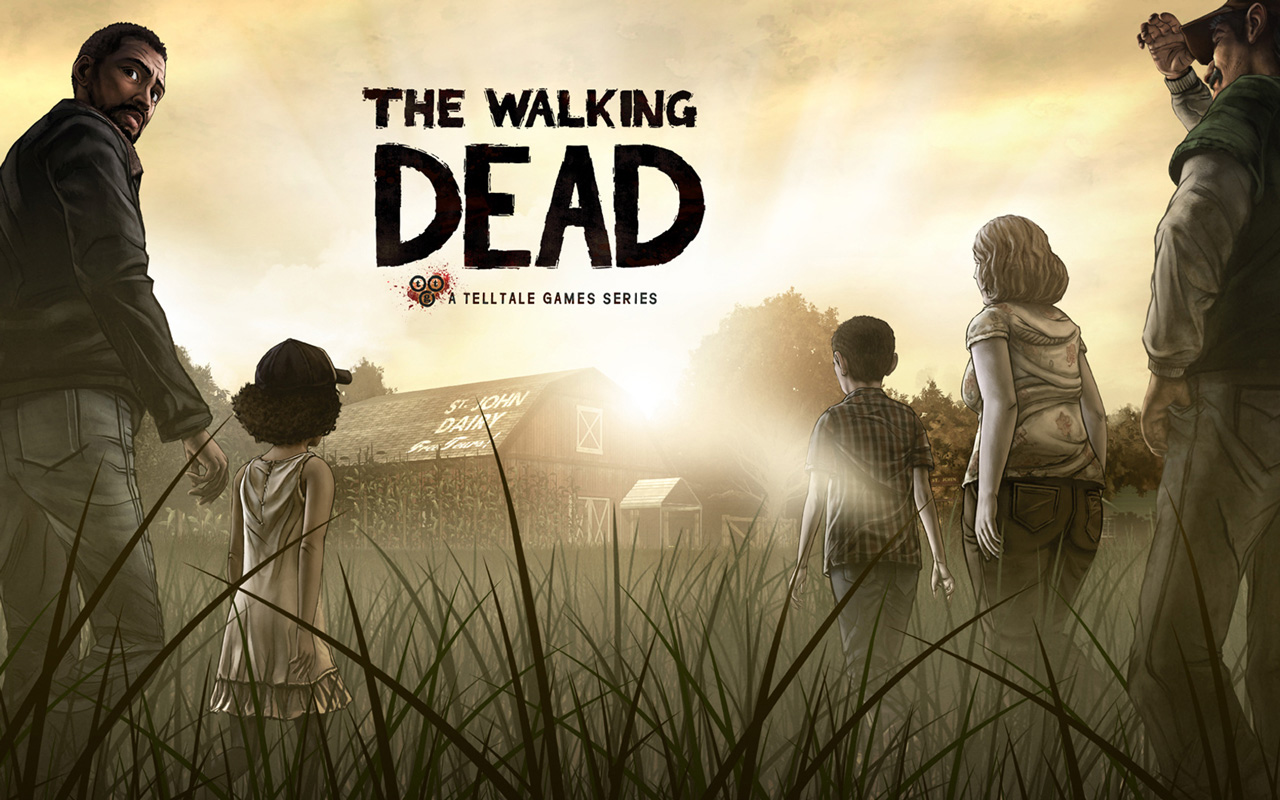Sometimes, life seems too shiny; shiny in the sense that all of the niceties and posturing that have become part of modern everyday life are merely masks all people are taught from birth to wear; a mask people use to cover up their true human nature. What, you ask, is the true nature of man? If you’ve taken a philosophy class at San Diego State (Which I haven't) , you’ll know true human nature rears its ugly head almost everywhere you look, from politics to war to third-world countries and low-income communities.
Yet, flaws and all, what humans have today is paradise compared to the desperate, melancholy and zombie-ridden world developer Telltale Games has masterfully created in its latest and best episodic game series. Based on the wildly popular transmedia universe, “The Walking Dead” began as a humble comic book series and has now become a three-word legend on Twitter, Facebook, Tumblr, you name it.
Like its past games, Telltale’s “The Walking Dead” is basically a point-and-click adventure spanning five episodes. You may be aware Telltale’s past movie-to-game adaptations, such as “Back to the Future,” received predominantly negative reviews with a common consensus that the gameplay mechanics killed the otherwise-solid story, animation and voice acting. Rest assured, however, Telltale didn’t make the same mistakes again with “The Walking Dead.”
Before getting into the game, a little background is needed to understand what’s going on (don’t worry, relatively no spoilers here, but if you want everything fresh and new, you should skip this paragraph). The player controls Lee, a convicted murderer who is literally thrust into the zombie apocalypse (hopefully, you’ll understand the reference when you play). Lee, in a fateful moment of serendipity, soon comes across an 8-year-old girl named Clementine in her backyard while searching for help. He quickly adopts her in an attempt to make amends for his crimes, a decision which drives the game’s events and choice-based story line, especially in the last few episodes.
Telltale’s choice to make “The Walking Dead” a decision-based game was an excellent one. Not only does it add replay value, but it also culminates nicely into one of the most nerve-racking, but poignantly human conversations in the last episode. All five episodes present the player with difficult choices which determine whether characters live or die. However, the first three episodes are the most powerful and emotionally taxing.
Similar to the TV show, “The Walking Dead” video game never lets up on the dark and twisted themes central to the comic books that inspired its creation. No spoilers here, but some of the choices you’re faced with are downright disturbing. When it comes down to life or death, self-preservation becomes paramount and attracting zombies to you by making a sound to save someone else will probably not be on the top of a survivalist’s to-do list. When you get bit, there’s no cure-all shot, antidote or medicine to heal you. Instead, you die slowly and painfully, then “reanimate” as one of them. This, to me, is a very powerful theme many other games overlook without attempting to leverage the emotional turmoil of putting down a loved one who is bitten to save them from “turning” invariably produces.
One of the themes that made “The Walking Dead” comic book series so popular is its almost-flawless portrayal of the human race in its darkest hour. Again, no spoilers here, but when the game reveals the key antagonist’s motivation for harassing Lee after his death, I almost felt remorse for the decisions which led to the character’s demise. He clearly broke the insanity-border a long time ago, and yet, killing him gave no real solace to Lee or myself. Once you get to the end of episode 5, hopefully you’ll feel the same way. Because of the overwhelmingly positive fan and media reaction, Telltale has already officially announced a “second season” of “The Walking Dead” game. To add to the pomp and circumstance, the game’s first season has also been nominated for Game of the Year by several media outlets, most notably Spike’s 2012 Video Game Awards.
During my time playing and replaying, “The Walking Dead’s” gameplay remains pretty solid. Apart from a few confusing and laggy animations during fast-paced events throughout the five episodes, the point-and-click controls work well on PC, but fit comfortably on any console. In terms of environmental exploration and interaction, Telltale did a very good job with consistency, fluidity and environmental boundaries, although I don’t appreciate how Lee walks into an invisible wall when the player tries to go past a boundary. Much of what takes up game time is dialogue alone, but that was more of a pro than a con. The dialogue brought the characters to life, which made them human. Unlike “Call of Duty,” “Dead Rising” or “Resident Evil,” “The Walking Dead’s” characters aren’t indestructible juggernauts with infinite ammo and extra lives (although you can die and have to replay the specific part you failed). Not that those things aren’t fun and all, but “The Walking Dead” does so much more without those constraints common among post-apocalyptic video games and movies.
Overall, Telltale’s version of “The Walking Dead” is an absolute must-play and a probable Game of the Year winner. Out of a score of five, despite some flaws and a hard-hitting ending worthy of the comic books that spawned it, Telltale’s “The Walking Dead” earns a solid five out of five.





No comments:
Post a Comment